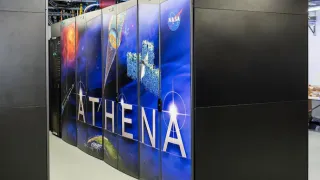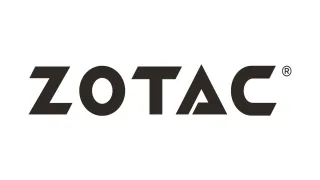Quantum AI has emerged as a game-changing technology in the world of smart trading. This powerful combination of quantum computing and artificial intelligence has the potential to revolutionize the way financial markets operate. In this article, we will delve into the intricacies of quantum AI and explore its role in transforming the trading landscape.
Understanding Quantum AI
Before we dive into the applications of quantum AI in trading, let's grasp the fundamentals of quantum computing. Unlike classical computers that rely on bits, which can represent either a 0 or a 1, quantum computers utilize quantum bits or qubits, which can exist in multiple states simultaneously, thanks to a principle known as superposition. This unique property of qubits allows quantum computers to perform complex calculations at an exponential speed compared to their classical counterparts.
Artificial intelligence, on the other hand, focuses on developing computer systems that can perform tasks that require human intelligence. Machine learning algorithms, a subset of AI, enable computers to learn from data and make informed predictions or decisions. When combined with quantum computing, AI algorithms gain a significant advantage in terms of computational power and efficiency.
The Basics of Quantum Computing
Quantum computing relies on the principles of quantum mechanics, a field of physics that deals with the behavior of particles at a microscopic level. At the heart of quantum computing lies the qubit, the fundamental building block of quantum information.
In conventional computing, bits can represent only binary numbers (0 or 1). In contrast, qubits can exist in a superposition of both states simultaneously. This property enables quantum computers to process massive amounts of data simultaneously and efficiently solve complex problems that are beyond the reach of classical computers.
The Intersection of AI and Quantum Computing
The convergence of AI and quantum computing has immense potential in various domains, including finance and trading. By leveraging the power of quantum AI, traders can gain a competitive edge in analyzing and predicting market trends.
The Evolution of Trading Technology
Before the advent of advanced technologies, trading involved manual processes and human decision-making. Traders relied on their intuition and experience to execute trades. However, the rapid advancement of technology has transformed the trading landscape.
Traditional Trading Systems
Traditional trading systems, also known as rule-based systems, rely on predefined strategies that are executed based on specific conditions. These systems use historical data and predefined rules to determine entry and exit points for trades.
While traditional trading systems have been successful to some extent, they are limited in their ability to handle complex market dynamics and adapt to changing conditions. This is where the integration of AI comes into play.
The Shift to AI in Trading
With the rise of AI technologies, trading systems have shifted towards more sophisticated and dynamic models. Machine learning algorithms allow traders to process vast amounts of data and identify patterns that human traders may miss.
AI-powered trading systems can analyze market trends, news sentiment, and other relevant factors to generate accurate predictions and make data-driven decisions. These systems can adapt to changing market dynamics and continuously improve their performance through self-learning algorithms.
Quantum AI in Trading
When quantum computing and AI join forces, the potential for enhancing trading strategies becomes exponential. Quantum AI can unlock patterns and insights hidden within vast amounts of financial data, enabling traders to make faster, more informed decisions.
How Quantum AI Enhances Trading Strategies
Quantum AI offers several advantages in trading strategies. Firstly, it enables traders to model complex financial systems and simulate various scenarios more accurately. Quantum computers can efficiently compute complex models, which would be impractical or time-consuming for classical computers.
Secondly, quantum AI algorithms can optimize portfolio management by considering a vast number of factors simultaneously. These algorithms help traders navigate the immense complexity of financial markets and identify optimal investment opportunities.
Risk Management with Quantum AI
Risk management is a crucial aspect of trading, and quantum AI can play a significant role in this area. By leveraging the power of quantum computing, traders can analyze and manage risks more effectively.
Quantum AI assists in detecting potential market risks through advanced data analysis and anomaly detection algorithms. It can quickly identify patterns or changes in market behavior that may indicate potential risks, enabling traders to take proactive measures to mitigate them.
The Future of Smart Trading
The application of quantum AI in trading is still in its early stages, but the future looks promising. As the technology continues to evolve, we can expect several developments in quantum AI trading.
Predicted Developments in Quantum AI Trading
Experts anticipate that quantum AI trading systems will become more refined and sophisticated in the coming years. The integration of quantum machine learning algorithms with real-time market data will enable traders to make faster and more accurate predictions.
Furthermore, the implementation of quantum AI in areas such as high-frequency trading and risk management will likely become more prevalent. Traders will have access to advanced tools that can process vast amounts of data in real-time, allowing them to respond quickly to market changes.
Challenges and Opportunities in Quantum AI Trading
While the potential advantages of quantum AI in trading are undeniable, there are several challenges that need to be addressed. Firstly, the development of practical quantum computers with enough qubits and stable quantum states is still a significant hurdle.
Secondly, ensuring the security and integrity of quantum AI systems is critical. Quantum computers have the potential to break traditional encryption methods, necessitating the development of secure quantum-resistant algorithms.
Despite these challenges, the opportunities presented by quantum AI in trading are immense. Traders who embrace this technology and adapt their strategies will likely have a competitive advantage in the evolving financial landscape.
Conclusion
Quantum AI holds immense potential in shaping the future of smart trading. The combination of quantum computing and artificial intelligence can revolutionize the way traders analyze markets, make predictions, and manage risks. With the continued advancement of quantum computing technology, we can expect to see more sophisticated quantum AI trading systems being developed. Traders who embrace this technology will be better equipped to navigate the complexities of financial markets and gain a competitive edge. As we move forward, it is essential to address the challenges associated with quantum AI and continue exploring its vast possibilities in the realm of smart trading.























